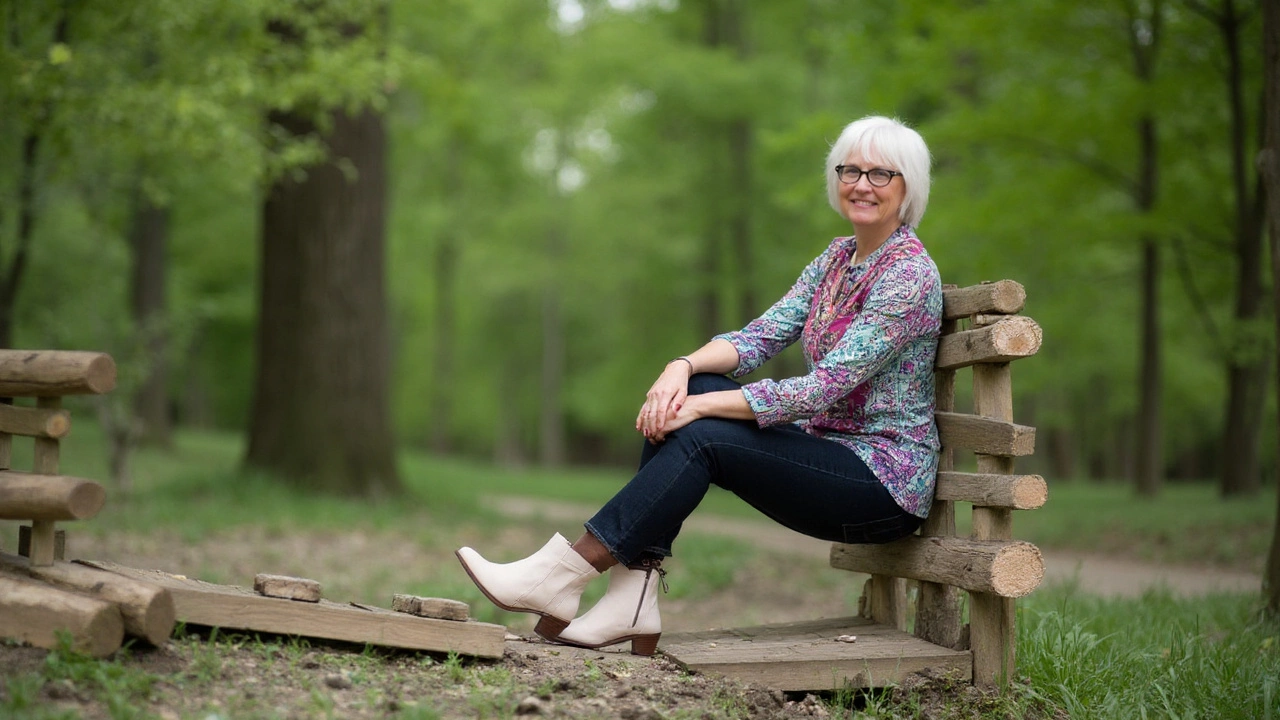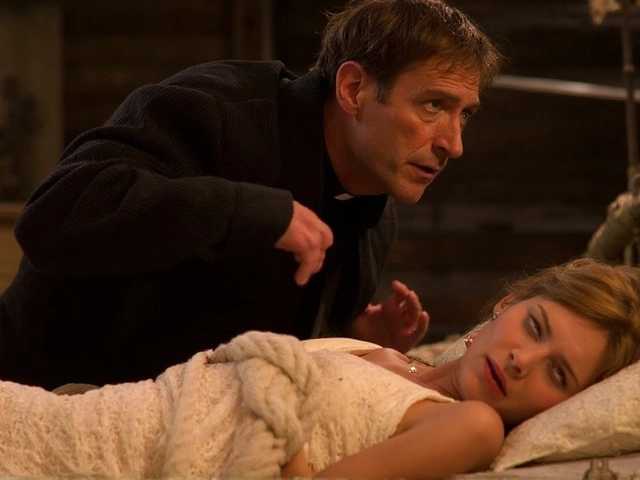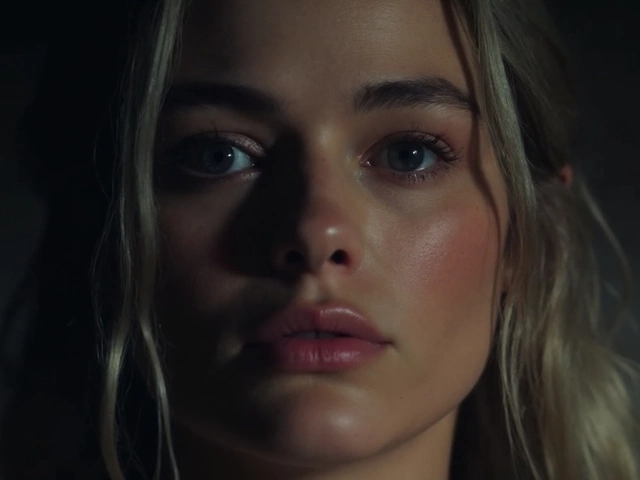A modern take rooted in a classic
Few children’s stories survive a century of cultural change and still feel fresh. E. Nesbit’s The Railway Children does. And now BBC Studios has rolled out a new 90‑minute adaptation, based on Dame Jacqueline Wilson’s 2021 reimagining, that moves the action to contemporary Scotland without losing the heart of the original. The Primrose Railway Children premiered on CBBC on December 1, 2024, with an iPlayer release the same day, positioned squarely in the pre‑Christmas family slot where co‑viewing still matters.
The cast blends familiar faces with rising talent. Kevin McKidd plays Rob Robinson, a dad whose unexplained disappearance kicks off the mystery. It’s a homecoming for the Grey’s Anatomy star, who first broke out in Trainspotting. He didn’t hide his excitement about filming in Scotland, praising Tom Bidwell’s script for capturing the spirit of the story he loved as a kid. Nina Toussaint-White plays Sarah, the mother forced to uproot her family from Glasgow to the Highlands, and she anchors the drama with a grounded performance that never slips into sentimentality.
The Robinson children provide the story’s engine. Ava McCarthy’s Phoebe is the inquisitive one, part sleuth, part older sister, pushing the plot forward as she hunts for clues. Ida Brooke’s Becks and Tylan Bailey’s Perry round out a trio that carries the emotional load of the film—new house, new school, new rules, and a missing parent. You feel the shiver of their first steps onto the rural platform, and the relief when the steam and steel of a locomotive give them something steady to hold onto.
Wilson’s book was always about making the classic speak to now. Phones exist, but in the Highlands dead zones do too. That simple choice—cell service that drops off with the last house on the road—creates room for the story’s clear air: kids roaming outdoors, talking to strangers with good instincts, and finding their own way. Director Julian Kemp and writer Tom Bidwell use that space to tap into the original themes—displacement, community, resilience—while acknowledging modern worries about job security, the cost of living, and the pressure that sudden change puts on families.
And yes, trains are the heartbeat again. Heritage railways don’t just look good on camera. They connect the kids to adults beyond their front door, to routines and rituals that keep small places running. When the Robinsons arrive, the line is both escape route and lifeline; the station is where rumors travel, kindness appears, and the story tightens its grip.

Inside the production
The film uses Scotland’s landscapes the way a good score uses silence—sparingly but with intent. Production shot in and around Glasgow, the Highlands, and on heritage railways that bring the steam era back to life on demand. You can almost smell the oil and coal in the wide shots. It’s a smart mix: city grit in the early scenes, then green valleys and sharp skies that dwarf the characters once they land in the village.
Bidwell, whose credits include The Irregulars and The Velveteen Rabbit, keeps the structure simple—mystery at the center, character first, plot clues tucked into conversations and encounters. He doesn’t load the film with knowing winks or overly clever updates. Instead, he trusts Nesbit’s bones. The community steps in. The children stretch to meet the moment. Adults carry their own private burdens. And the railway—literal and symbolic—threads them together.
McKidd’s Rob is more than a plot device. Even in absence, he shapes how the kids behave. You see it in Phoebe’s stubborn curiosity, in Becks’s flashes of anger, in Perry’s quiet loyalty. Toussaint-White’s Sarah has the trickier job: managing bills, keeping routines, and staying honest with three kids who want the full truth yesterday. She plays the role with open warmth and a steel edge, the kind of mother you recognize instantly—even when the situation is extraordinary.
The supporting characters matter, too. Rural stories can tip into caricature, but the stationmaster, Mr. Brown, is written as a gruff, decent man whose world is the timetable and the track. He becomes a marker for the village mood: cautious at first, gradually letting the Robinsons fold into local life. It’s the sort of dynamic that feels earned because the film gives it time to breathe.
Julian Kemp directs with a light touch—low angles at platform level to put us in the kids’ perspective, patient coverage during arguments so nothing feels rushed, and a willingness to linger on faces when words aren’t needed. When the train hisses into frame, it’s not just spectacle; it’s punctuation. The craft choices keep the pace swift without losing texture.
Behind the camera, BBC Studios Kids & Family led the production in association with BYUtv, a partnership that hints at broader reach beyond the UK. Tali Walters served as Creative Lead, with Alison Davis and Grainne McNamara as Executive Producers and John McKay producing. It’s a team built for family storytelling—tight schedules, exacting standards, and an eye for locations that do half the work if you frame them right.
The timing of the premiere wasn’t accidental. The early evening CBBC slot targets families who still sit down together in December. It’s an increasingly rare habit in the streaming era, but it persists for event programming and familiar brands. Nesbit’s story has been adapted multiple times because it gives viewers something they want in winter: adventure with warmth, jeopardy without bleakness, and a payoff that lands on empathy over cynicism.
Wilson welcomed the adaptation, calling it a treat for families. That stamp matters. Her 2021 novel, The Primrose Railway Children, wasn’t nostalgia for its own sake. It asked what happens when you move the story to the modern day and keep the values intact. The film follows suit. It doesn’t update for the sake of reference points; it updates to make the characters’ choices feel like they could be yours.
The production design leans into that idea. Interiors are modest and slightly improvised: mismatched mugs, jackets on chairs, charging cables that don’t reach far enough. The village isn’t a postcard. It’s a place where when something breaks, someone knows how to fix it—if you ask. The trains are lovingly photographed, but the machinery is never fetishized. The film treats the railway as work as much as wonder: schedules, maintenance, safety checks, and the ritual of a day’s first run.
McKidd’s comments about Scottish crews weren’t just diplomacy. Scotland’s screen infrastructure has scaled up fast in recent years, and family films like this benefit from that muscle. The shoot’s mix of urban and rural locations also shows a production confident in its logistics: city permits, weather windows in the Highlands, and tight heritage railway timetables all slotting into a 90‑minute deliverable with public‑service standards.
For the young cast, the railway sequences do more than provide backdrop. They change how the kids move. On a platform, you stand back from the yellow line. On a footbridge, you wait for a train to pass before talking. In a signal box, you keep your hands to yourself. Those rules shape scenes and performance beats—curiosity meeting caution—which fits a story where responsibility grows in real time.
The film keeps its tensions family‑friendly but honest. Money is tight. The sudden move bruises friendships in Glasgow. Rural life is beautiful and isolating at once. And the mystery of a missing parent isn’t softened into a puzzle box—it has emotional weight. That balance is hard to pull off. The script gives each child a slightly different coping mechanism, which pays off when they start comparing notes and pooling courage.
Viewers who know the 1970 film will spot deliberate echoes in tone rather than in plot. There’s reverence for small acts of kindness, for the dignity of work, and for communities that judge on behavior, not background. But this version belongs to now. It sidesteps cynicism, avoids easy villains, and suggests that answers rarely arrive on time and in a tidy envelope. Sometimes they roll in late, steaming, loud, and impossible to miss.
As an investment in family programming, this is a clear statement from the BBC. The channel needs stories whole households can watch together—and return to on iPlayer once the live moment passes. The Primrose Railway Children earns that repeat watch. Kids will chase the clues; adults will tune into the parenting tightrope and the economic subtext woven through quiet scenes in kitchens and at ticket windows.
If you’re keeping score on creative pedigrees: Bidwell brings a knack for clear emotional storytelling from his previous work. Kemp directs to performance, not spectacle. McKidd and Toussaint-White ground the film with lived‑in turns that never feel like prestige TV slumming it in family fare. And the young trio doesn’t flinch in the spotlight. Ava McCarthy, in particular, hits that tricky mix of boldness and vulnerability that makes a child lead believable.
There’s also a practical lesson tucked inside the drama: remove the constant hum of connectivity and kids will fill the space with curiosity. That’s not a moral lecture, just an observation the film uses well. No phone signal becomes story engine, not a gimmick, forcing face‑to‑face conversations and actual detective work. It also opens the door to neighbors who become plot pivots rather than cameos.
The music does a lot with a little—strings that lift at the sight of steam, softer cues in kitchen scenes, and silence when the story needs muscle. Editing respects moments instead of rushing to the next reveal. The final act ties threads without pretending every knot can be undone in 90 minutes. That restraint is part of why it lands.
For families who met Nesbit through previous adaptations, this one is a welcome return that doesn’t feel like a rerun. For those arriving fresh, it’s a story about finding your feet when the ground shifts, told with warmth, intelligence, and a sense of place that lingers after the credits. And for Scotland, it’s another showcase of how location, crew, and story fit together when the brief is straightforward: carry a classic across time without dropping what made it beloved.








Write a comment